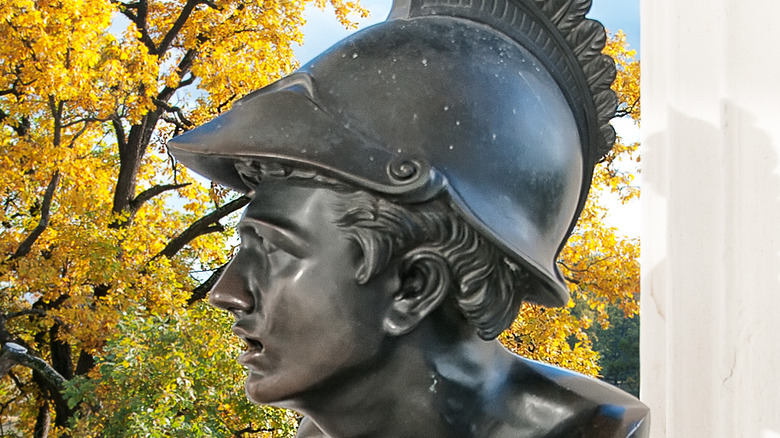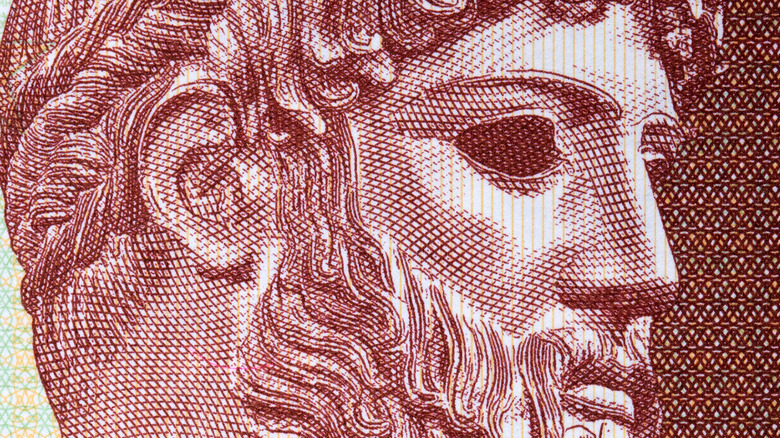The Myth Of Ajax Explained
Greek mythology is never short on heroes. These millennia-old tales of the triumphs and trials of men who might (or might not) have been historical figures make it hard to tell fact from fiction when the gods inevitably turn up and spark some drama. Ajax the Greater is one such hero, the ideal soldier who was second only to the legendary Achilles in terms of size and strength (via Britannica).
Ajax the Greater was the son of the king of Salamis, and has a large part to play in Homer's epic poem "Iliad" and the Trojan War. Described as being huge in stature, strength, and frame, Ajax sought out Hector, the prince of Troy, for a duel in the midst of the Trojan War (via Greek Mythology). The two great warriors were evenly matched; their first bout lasted an entire day, with Zeus stepping in to declare the fight a draw. Ajax and Hector exchanged gifts as a sign of respect, with Ajax receiving a sword. Further duels had more decisive victories for either soldier, but neither was killed.
Ajax argued with Odysseus
According to Greek Mythology, Ajax was originally a stand-in for Achilles, the only warrior who could surpass him in strength, but when Achilles arrived at the war he was killed. With the Trojan War ended, Ajax teamed up with Odysseus, protagonist of the "Odyssey" who also figures prominently in the "Iliad," to retrieve the body of Achilles, fighting against the Trojans once again. With a little help from the goddess Athena, they were successful (via Britannica).
Unfortunately, the two heroes got into a spat over who deserved the armor of the fallen Achilles. Ajax claimed that his heroics against Hector and other deeds accomplished fighting against the Trojans meant he should get the armor, but Odysseus was a superior speaker and managed to convince the Greeks to give it to him. Ajax grew mad with anger and disappointment, and threw himself onto the sword gifted by Hector. Ajax remained a hero, particularly on the island of Salamis, where he was given a temple and festival thrown in his honor as one of the more tragic, yet heroic figures in Greek mythology.

